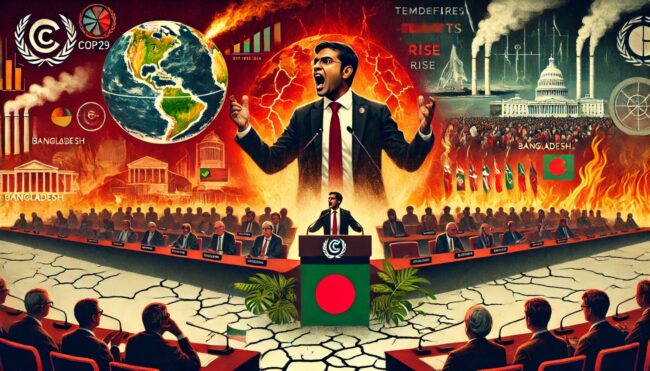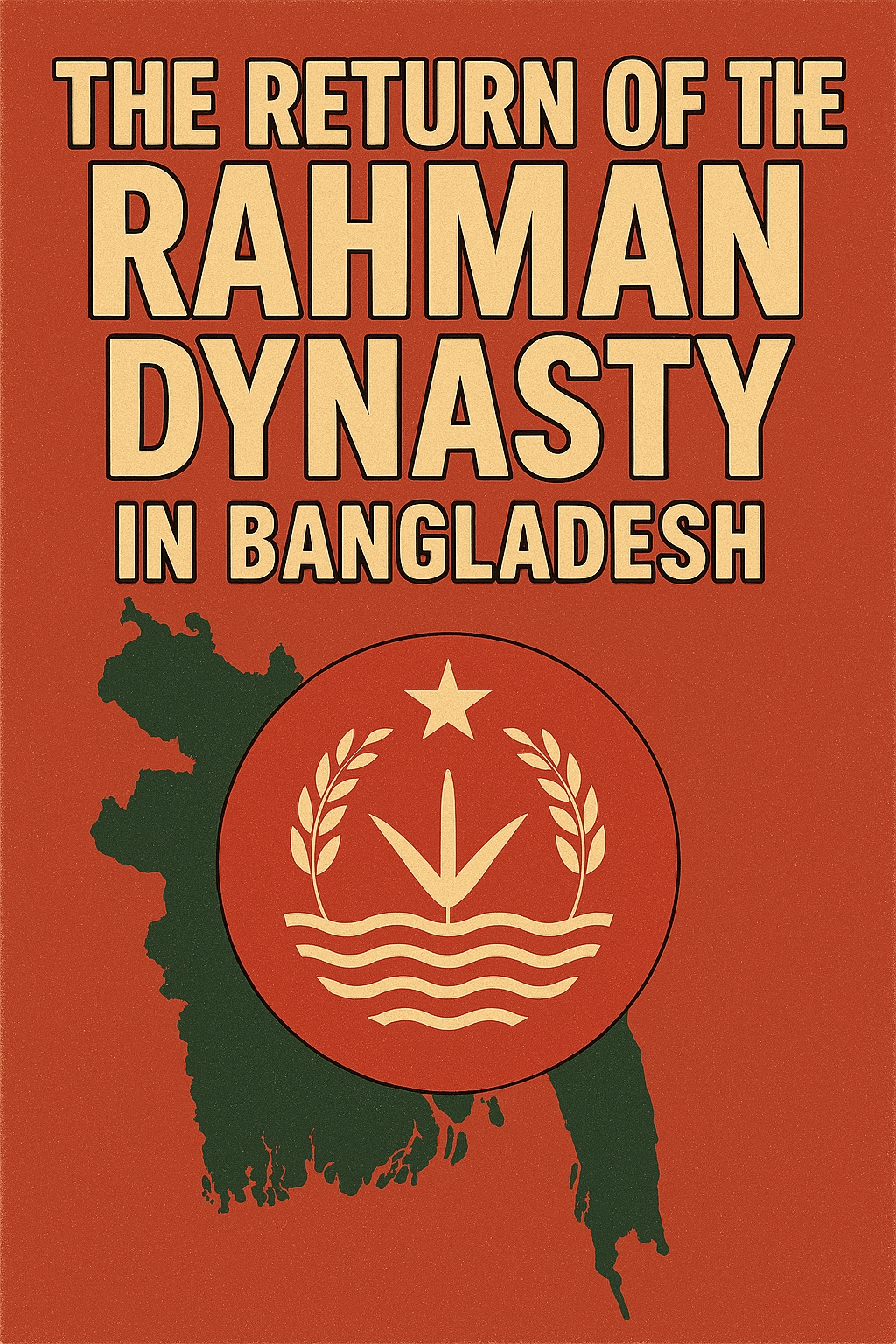Developed Countries Burn the Planet: Yunus’ Call for Compensation at COP29

As the world’s attention turned to the critical COP29 Climate Summit in Baku, Azerbaijan, one of the most powerful and unequivocal voices emerged from Bangladesh – a nation on the frontlines of the climate crisis. Dr. Muhammad Yunus, the renowned Bangladeshi social entrepreneur and Nobel Peace Prize laureate, delivered a stirring message that cut through the political posturing and placed the onus firmly on the developed nations responsible for the world’s environmental devastation.

“The developed countries have burned up the planet, and now they must compensate the victims,” Yunus declared, his words resonating with a sense of moral authority and righteous indignation. As the leader of a country that contributes a mere 0.47% to global greenhouse gas emissions, yet stands to lose up to 17% of its land to rising sea levels, Yunus’ perspective carried the weight of lived experience.
As one of the world’s most climate-vulnerable nations, Bangladesh is bearing the brunt of the developed world’s carbon emissions. Rising sea levels have already submerged large swathes of the country’s low-lying coastal regions, displacing millions of people and destroying vital infrastructure. Devastating cyclones, fueled by warmer ocean temperatures, have also become more frequent and intense, causing widespread destruction and loss of life. Meanwhile, erratic rainfall patterns and prolonged droughts have disrupted agricultural productivity, threatening food security for Bangladesh’s 160 million inhabitants. The compounding effects of these climate-related disasters have pushed many Bangladeshi communities to the brink, underscoring the grave injustice of a crisis not of their making.
Yunus’ call for climate justice was a forceful rebuke of the historical imbalances that have shaped the global response to the climate crisis. He argued that the wealthy nations, through their relentless pursuit of industrialization and unchecked carbon emissions, have created a crisis that disproportionately impacts the Global South – nations that are ill-equipped to bear the immense social, economic, and environmental costs.
Yunus pointed to the stark disparities in carbon footprints, noting that while Bangladesh contributes a mere 0.47% to global greenhouse gas emissions, it stands to lose up to 17% of its land to rising sea levels. This devastating asymmetry lies at the heart of the climate justice movement, which demands that the developed world take responsibility for the harm it has inflicted upon vulnerable nations.
Moreover, Yunus underscored the existential threat faced by Bangladesh and other climate-vulnerable countries. The prospect of mass displacement, infrastructure collapse, and humanitarian crises looms large, jeopardising the very survival of these nations. Yunus argued that this was not merely an environmental issue, but a matter of fundamental human rights and global solidarity.
By placing the onus firmly on the developed world, Yunus’ message at COP29 challenged the complacency and political posturing that has too often characterized global climate negotiations. His unwavering call for compensation and restorative action served as a moral rallying cry, amplifying the voices of those on the frontlines of the climate crisis.
The statistics Yunus cited were indeed sobering. Bangladesh, a country of over 160 million people, faces the looming prospect of mass displacement, disruption to its fragile economy, and the potential for widespread humanitarian crises as a result of the climate emergency. Yet, the country’s contribution to the problem pales in comparison to the outsized role played by the developed world.
Yunus’ message was not one of mere lament, but a clarion call for accountability and restorative action. He demanded that the wealthy nations provide financial compensation to the vulnerable countries that bear the brunt of their actions, recognizing the moral imperative to address the historical inequities that have shaped the climate crisis.
This stance echoed the long-standing principle of “climate justice,” which calls for a reckoning with the disproportionate burdens faced by the Global South and the need for equitable solutions. Yunus’ voice added powerful momentum to this movement, amplifying the calls of those who have historically been marginalised in the climate discourse.
Importantly, Yunus’ appeal transcended the realm of politics, appealing to the shared humanity that should underpin global cooperation. He argued that the climate crisis is not a matter of “us versus them,” but a universal challenge that requires collective action and a willingness to address historical imbalances.
As the world grapples with the escalating climate emergency, Yunus’ message served as a clarion call for a new era of climate diplomacy – one that prioritises empathy, accountability, and a genuine commitment to supporting the nations and communities most vulnerable to the ravages of a warming planet.
By elevating the voices of those on the frontlines of the climate crisis, Dr Muhammad Yunus has reminded the world that the path to a sustainable future must be paved with a deep understanding of the unequal burdens borne by the Global South. His impassioned plea at COP29 was not just a call to action, but a moral imperative for the developed world to make amends and safeguard the future of all humanity.





